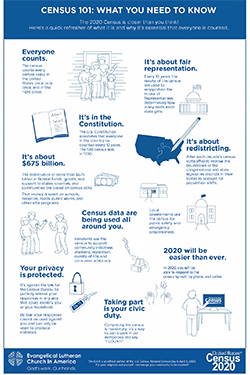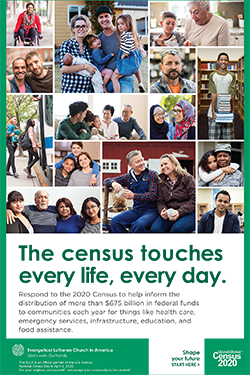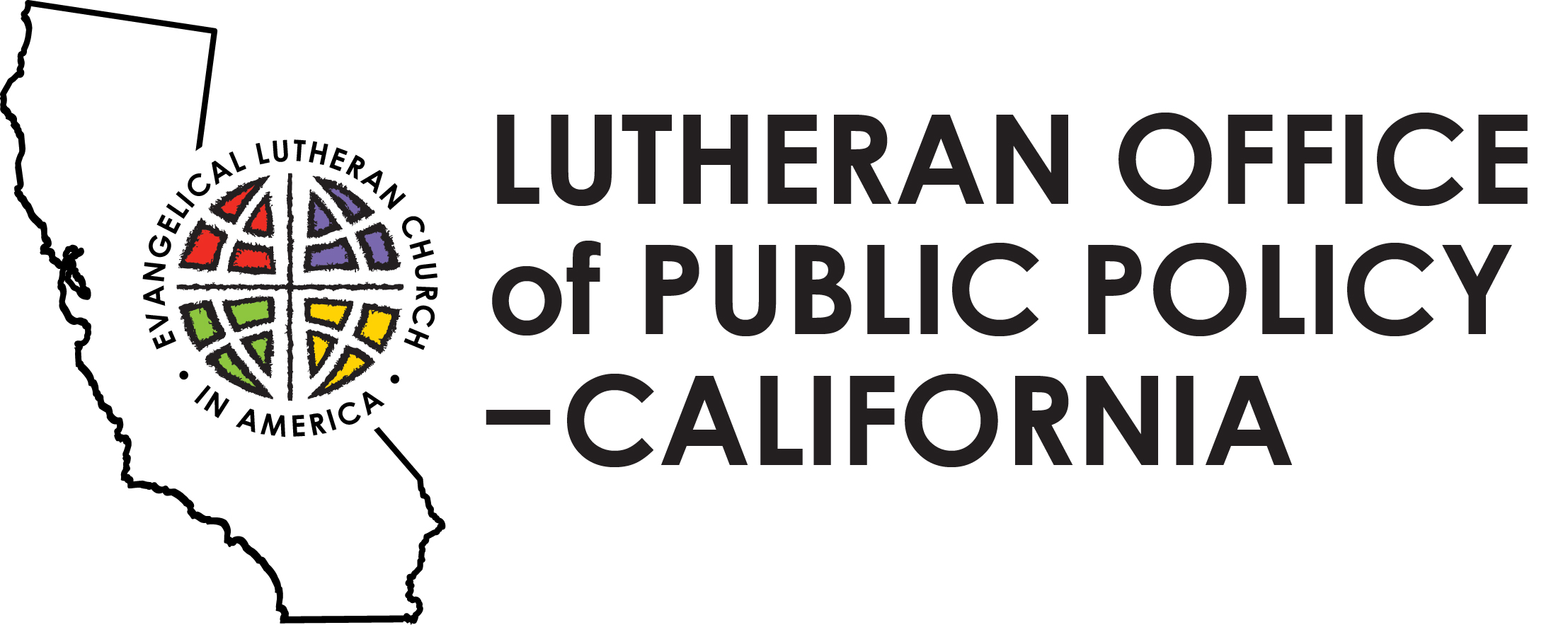California is vulnerable to an undercount:
- 29 million Californians belong to one or more groups that have been historically undercounted
- This number is equivalent to 72% of the state’s nearly 40 million residents
- Hard-to-reach people include renters, young men, children, African-Americans and Latinos
If there’s an undercount of the state population, California may lose a seat in the U.S. House of Representatives as well as billions of dollars in federal funding for school lunches, Medi-Cal, block grants for affordable housing, and other programs with funding streams based on population.
Sources:
- Californians and the 2020 Census from the Public Policy Institute of California
- California 2020 Census Explained, by Judy Lin at CalMatters
The Following was First Posted on February 24, 2020 by ELCA Advocacy.
 Our communities are significantly shaped by census data, and Census 2020 will update these numbers for the first time in 10 years. The ELCA is an official partner of the 2020 Census to encourage the most accurate count possible.
Our communities are significantly shaped by census data, and Census 2020 will update these numbers for the first time in 10 years. The ELCA is an official partner of the 2020 Census to encourage the most accurate count possible.
“Funding for over 100 federal programs, many of which combat poverty and hunger and support people in need, are distributed based on population,” says the Rev. Amy E. Reumann, Director of ELCA Advocacy. “An accurate count ensures that resources more justly go where they are needed most. It is also critical for representation in the political process as census information determines electoral maps.”
Undercounting is a significant issue among groups which benefit most from anti-poverty programs and from greater representation in decision-making. “Hard to count” individuals in census experience include persons residing in rural areas, young children, LGBTQIA persons, people experiencing homelessness, people who do not speak English, indigenous peoples and racial and ethnic minorities. The Census aims to count everyone regardless of immigration status, and as a result of the U.S. Supreme Court ruling, there will not be a question about citizenship status on the 2020 Census.
People underrepresented in previous census counts are not strangers. They are part of our congregations and communities. As we work toward a just world where all are fed, for your neighbor and yourself – encourage your community to be counted!
